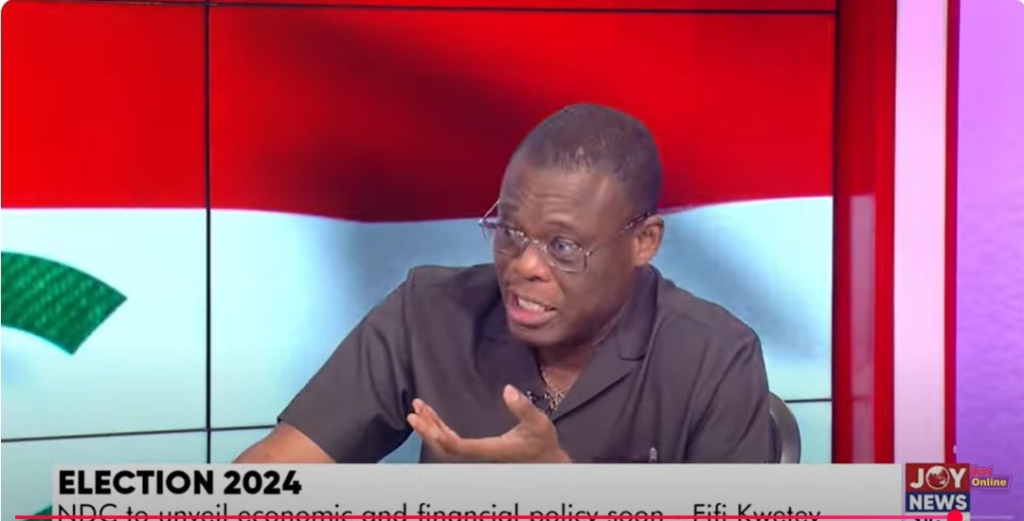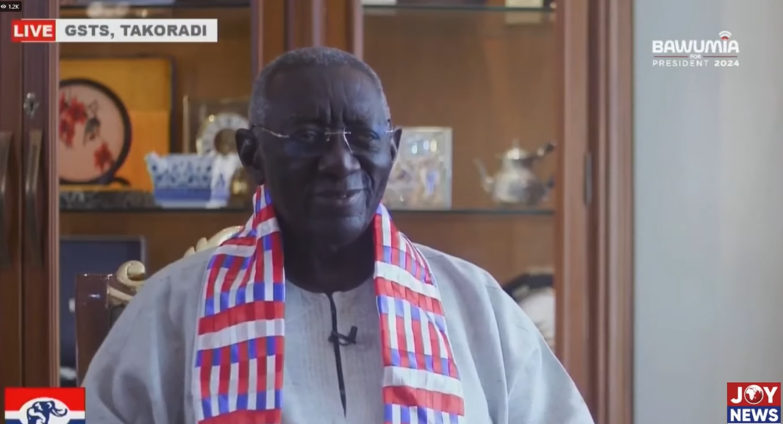
Audio By Carbonatix
The General Secretary of the National Democratic Congress (NDC), Fifi Fiavi Kwetey, has refuted claims that former President John Agyekum Kufuor left behind a robust economy, stating that the reality of Ghana’s financial situation at the time was far from strong.
Speaking on JoyNews' Upfront, Mr. Kwetey addressed the challenges the National Democratic Congress (NDC) faced when it assumed power in 2009, drawing attention to the economic issues inherited from the New Patriotic Party (NPP) government under Kufuor.
Mr. Kwetey described the 8% economic growth during Kufuor’s tenure in the final years of his administration as “cosmetic,” emphasising that it did not reflect the reality of the economy’s fundamentals.
“That growth was nominal, driven by temporary factors rather than substantive improvements in the real economy,” he explained. “The fundamentals were weak, and we had to work hard to rebuild the economy from the ground up.”
"..Somehow people forget, people create the impression as if that President Kufuor left an economy that was so strong. No, it was not strong."
He pointed out several key indicators of economic instability that characterized the period.

According to him, the cedi depreciated by over 20% in the final year of President Kufuor’s administration, highlighting significant weaknesses in currency stability. Inflation, which stood at 18% when the NDC took over, quickly rose to 21%, exacerbating the financial challenges.
Again, he noted that the banking sector was also in crisis, with the Ghana Commercial Bank teetering on the brink of collapse.
Additionally, the country’s balance of payments was severely negative, underscoring difficulties in external trade and financial management, adding that a fiscal deficit of 15%, coupled with judgment debts and unpaid commitments amounting to 22% of GDP, was clear evidence of economic mismanagement during the period.
Mr. Kwetey, however, drew parallels between the challenges faced in 2009 and the current economic crisis, asserting that the NDC has a track record of tackling severe economic problems.
“This is not the first time we are coming into government and meeting challenges. In 2009, we inherited an economy in disarray, but through hard work and strategic measures, we stabilised and rebuilt it. The scale of the current crisis is much bigger, but we are ready to face it once again.”
Latest Stories
-
Ghana is rising again – Mahama declares
4 hours -
Firefighters subdue blaze at Accra’s Tudu, officials warn of busy fire season ahead
5 hours -
New Year’s Luv FM Family Party in the park ends in grand style at Rattray park
5 hours -
Mahama targets digital schools, universal healthcare, and food self-sufficiency in 2026
5 hours -
Ghana’s global image boosted by our world-acclaimed reset agenda – Mahama
5 hours -
Full text: Mahama’s New Year message to the nation
5 hours -
The foundation is laid; now we accelerate and expand in 2026 – Mahama
6 hours -
There is no NPP, CPP nor NDC Ghana, only one Ghana – Mahama
6 hours -
Eduwatch praises education financing gains but warns delays, teacher gaps could derail reforms
6 hours -
Kusaal Wikimedians take local language online in 14-day digital campaign
7 hours -
Stop interfering in each other’s roles – Bole-Bamboi MP appeals to traditional rulers for peace
7 hours -
Playback: President Mahama addresses the nation in New Year message
7 hours -
Industrial and Commercial Workers’ Union call for strong work ethics, economic participation in 2026 new year message
9 hours -
Crossover Joy: Churches in Ghana welcome 2026 with fire and faith
9 hours -
Traffic chaos on Accra–Kumasi Highway leaves hundreds stranded as diversions gridlock
9 hours

